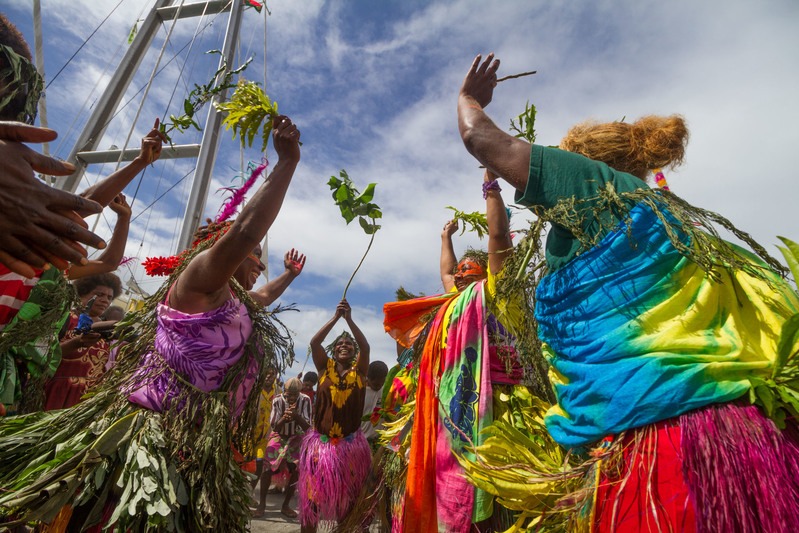Initial outcomes announced by Pacific Islands Forum leaders on Friday included deals on climate finance, migration and energy transition, but Australia’s unwavering stance on fossil fuel phase out is fuelling growing discontent.

Australia’s pact with Tuvalu to offer resettlement pathways to climate migrants from the low-lying archipelago sparked global headlines, but also raised many eyebrows as Australia continues to green-light new fossil fuels projects.
With the 28th United Nations Conference of the Parties, COP28, in Dubai mere weeks away, tensions are mounting over Australia’s continued expansion and subsidisation of the fossil fuel industry, and what that means for Australia’s ambitions to host a joint COP with the Pacific in 2026.
The Production Gap report released this week showed that we are drastically off course from limiting warming to 1.5 degrees, driven largely by expanding gas and oil production globally.
Greenpeace Pacific Advisor, Shiva Gounden, said that the modest commitments made by Prime Minister Albanese during the Forum fall short of expectations to address the accelerating climate destruction we’re seeing in real time.
“We’re underwhelmed and disappointed with the lack of ambition shown by the Australian government at this year’s Forum, which takes place against the backdrop of what has been confirmed as the hottest year on record.
“We saw a classic case of chequebook diplomacy in action, coupled with piecemeal announcements to distract from the most urgent issue — a commitment to stop approving new fossil fuels projects in Australia, something Pacific leaders and civil society have been crying out for in very clear terms.
“Australia is the third largest fossil fuel exporter in the world and makes an oversized contribution to global emissions. We are alarmingly off course from keeping warming within 1.5 degrees — a figure not just an aspiration, but a lifeline for our Pacific communities who are facing urgent threats to their livelihoods, their culture, their very existence.
“We want to see real climate action, not empty rhetoric and that means a firm commitment to stop all new fossil fuel approvals and subsidies — money which, rather than lining the coffers of polluting coal and gas corporations, could support Pacific nations to deal with climate impacts and to transition their economies.
“If the Australian government is serious about supporting its Pacific vuvale and being taken seriously on the international stage for a COP31 bid, it must demonstrate genuine commitment to re-align our emissions targets with a 1.5-degree pathway.
“On the road to COP28, Australia must centre Pacific demands on fossil fuels and climate finance. We look forward to seeing the final leaders’ communique and building on these commitments in Dubai later this month.”
Pacific Climate Action Network’s Regional Coordinator, Lagi Seru, said:
“The Leaders’ decision to welcome the aspiration for a just and equitable transition to a fossil fuel-free Pacific, and the commitment made to transition away from coal, oil, and gas, without abatement loopholes and in line with the 1.5°C limit, is welcomed, but falls short of the ambition required to save our islands, peoples and communities from the unprecedented climate impacts.
“Pacific leaders have missed an opportunity to demonstrate genuine commitment instead, opting for an ‘aspirational’ rhetoric. Furthermore, Australia’s newly signed pact with Tuvalu is a mere band-aid solution that in no way adequately addresses the fossil-fuelled climate crisis.
“Australia must understand that the only real solution to stop the destruction of Pacific homes is to stop the expansion of its fossil fuel industry, end all fossil fuel subsidies, and support the climate frontline countries and communities to adapt to the impacts of climate change.”
—ENDS—
